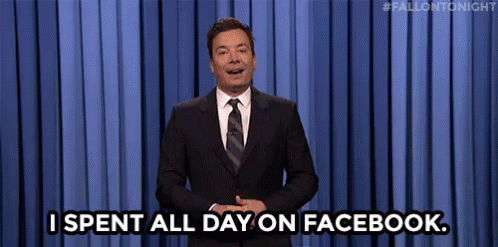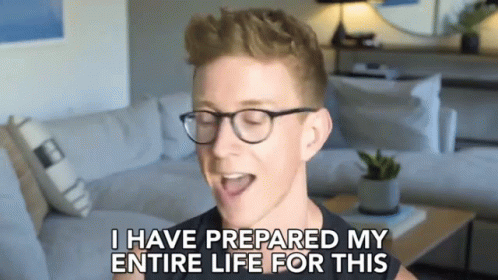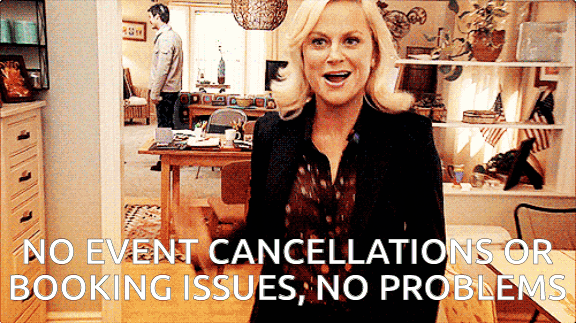How the wells of virtual events can guide speakers to more revenue, time, and influence.
“The common trait of any event--real or virtual--is good content.”
This idea, delivered by Heather Clancy in a New York Times article from a conversation with the CEO of the virtual event production company, PlatformQ, affirms that an event is not defined by its size or frill, but by the quality of its offering.
Since companies set on grappling the advantages of virtual events have made their way to prominence, the attitude behind speeches, conferences and venues has undergone a paradigm shift.
Now, it is hard to find an event lacking a live-stream, or a speech given without posting to a social media channel or corporate website.
Digiday reported that The Financial Times launched the first session of its “Digital Dialogues” series in a virtual format, and with great success:
- 4,600 tuned in for the live event and 1,500 accessed afterward
- Average viewing time was 55 minutes
- 700 sent questions to the panel of three speakers
- 4,000 responded to polling questions.
- The event was not monetized, but was pursued afterward by over 50 brands seeking partnership
Given the kind fortune shown to large event producers in the online event space, and the heightened focus on content that comes along with it, it is imperative that those who speak for a living understand the benefits of involving their careers with virtual engagements.
Attitudes behind speech-centered events are swiftly changing at the influence of digital capabilities; the results of these changes show an enhancement in the experience for speakers and audiences alike.
Below are fifteen reasons to purchase that webcam and reconsider the uninspiring backdrop of your office.
1) Awareness for Virtual Events Is Rising

From traditional news outlets to app markets, virtual events are in the spotlight.
The app IRL, which has switched its offering to cover only virtual events, shows the increasing levels of their importance. Even primary news sources such as The New York Times and The Seattle Times are beginning to put out pages and posts dedicated to the awareness of virtual events.
This coverage should only expect to intensify and match the speed of publicity that in-person events receive.
2) Boost Number of Engagements by Going Virtual

The question has come to this: What event can’t be made virtual?
According to the event management technology company, Aventri, virtual events cost an average of 75% less than those had in person. Financiers, who once felt their events to be ‘must-haves’ in the flesh, are now impatiently eyeing their online options.
From Apple to cannabis conferences, developments in technology and staggering amounts of creativity have allowed waves of events to land prosperously online.
With savings from online events, there are incentives to increase capacity. Huge influencers such as Eventbrite now recognize the reality of online events.
Increases in promotion exhibit real promise for speakers, where depending on demand speakers now have the potential to book multiple engagements per day.
3) Less Travel, Less Burnout

Spend less time in the air and more time on the purpose.
Findings show that business trips begin to create wasted time before the bags are packed:
- Work travel requires an average visit to 38 websites before finalizing plans
- An exhaustive 45 days is spent considering the logistics of a business trip
Even before the security checkpoints, middle seats, cab fares, stale breakfasts, hotel beds and hordes of sweaty-palmed conference attendees--work travel is a drawn-out process of interruptions that imposes a debt of perfectly enjoyable hours well in advance.
In addition, attending virtual events will remove 1) time spent in traffic, 2) the hassle of finding the venue, and 3) booking a place to stay in.
Virtual events respect this time while eliminating unnecessary clamor. Not only is time claimed back, but it can be used to groom the content a speaker was paid to prepare--resulting in a more enjoyable and valuable experience for all involved.
4) Connect With International Crowds From Home

Technology continues removing barriers to event attendance.
As virtual events do away with geographical constraints, global reach will reveal higher event interest and traffic. This trend shows itself in the activity of applications like In Remote Life.
In an interview by John Constine of TechCrunch with IRL co-founder, Abe Shafi, they explain how this event planning app has turned its focus entirely towards helping people construct their virtual calendars and find virtual events that appeal to them, broadening event accessibility:
“…relevant to a wider audience because before an event only mattered if it was around you. But now with In Remote Life, content has no geographical limitations,”
- Abe Shafi, Co-Founder of IRL
5) Extend Reach to Younger Audiences

Use virtual engagements to capitalize on Millenial and Gen Z demographics
In 2017, Eventbrite stated that 90% of young adults (18-34) attended a live event--a number that shows steady growth every year. When looking to virtual events, many reports also show high energy from online audiences:
- 30% of people claim to be more likely to engage online than in person
- 67% of live-stream audiences bought a ticket to a similar event the next time it occurred
- 91 million users will utilize live streaming by 2024
Such numbers indicate that the vigor of online events derives from a youthful audience who are discovering and demanding more of the content they can access online.
For speakers, it is critical to understand what these augmented audiences mean towards how they digitally represent themselves, and how they seek to capture and maintain their affections.
6) Freedom From In-Person Event Roadblocks

Events become malleable, allowing them to take their appropriate form.
Physical venues lay enormous time constraints on events, while working against their full capacities. With the shedding of these cuffs through virtualization, the unbridled flexibility, and the benefits that accompany it, is impressive:
- Polling options allow audiences to engage throughout the event
- Session ratings and feedback can guide a singular event into a series or paid course
- Platforms that track attention levels for each audience member, allowing speakers greater insight to their performance
Certain functions don’t belong in a 90-minute keynote/question format. A virtual event can provide data-authored evidence to show that an event ought to break into more digestible sessions.
This type of transition was recently discovered and shown in a post by Martech Advisor from a contributor who spoke of learnings from a physical event turned digital series.
“All in all, our event was a complete success. In total, we had 640 customers in attendance at the peak and 570 at the lowest point. This was more attendees than we would have been able to have at our in-person event.”
- Dayana Nevo, VP Marketing of WalkME
7) Increase Online Influence Through Virtual Events

Virtual audiences are more likely to follow and interact with speakers.
In analyzing the way online audiences behave, findings from 99 Firms, a marketing and software service company, report crowds who are eager to engage during live-streamed online events:
- Users are 10x likelier to comment on Facebook Live-streamed video than regular content
- Users spend 3x longer watching video when its live
- Live videos generate 6x the interaction as traditional videos
With audiences more comfortable online, speakers will see growth in their followings and be able to engage with them more judiciously than they would be able to in-person.
Because of shared data from online event platforms, speakers will end up with a robust knowledge of their audience and equip themselves to meet viewers with a targeted response.
8) Develop Online Speaking Skills

Key events urge that speakers understand virtual techniques.
In the past few years, large event producers have come to understand the merits of virtual speakers, panels and conferences.
As seen with virtual events like Global Marketing--which in 2019 had over 50+ speakers reach over 40,000 attendees--knowing how to capitalize on an online experience has become a crucial skill.
Those who understand the importance of this evolution are sharing their experience and posting about it to help others prepare for its unique challenges.
Below are articles from experts on tips for mastering online presentations:
- How to excel at online speaking
- How to keep an online audience engaged
- How to properly order an online Q&A session post-speech
9) Simpler Methods of Booking With Virtual Events

Eliminate certain hardships that accompany in-person gigs.
A long-standing public speaker and lawyer, Mitch Jackson, who works on speaking contracts recently gave a podcast interview where he spoke on the inevitable digitization of online events.
He spoke about tensions that often attach themselves to speaking arrangements and went on to list reasons to show the ways virtual events might make negotiations easier between interested parties, and contracts easier to understand:
- Elimination of venue clauses
- Fewer disputes over cancelations
- Minimal insurance clauses
- Less event cancellations due to bad weather
- Minimal problems regarding availability of venue
In a personal blog post, he confronts the process of speaking contracts and shows the complexities of in-person events and offers advice to professional speakers.
10) Increase Revenue, Decrease Risk

Effective online speaking will become a commodity of true value.
A reputation of being able to give a brilliant virtual presentation will become indemnity for anybody maintaining a speaking career. The master of online speech will also be quick to identify given the ease at which data can gauge audience satisfaction and engagement.
Aside from the recognized skill of online speaking itself, there are plenty of reasons speakers might expect to bring in more money through virtual gigs:
- Less: Cancelations and susceptibility to the fragilities of in-person events
- Less: Costs attached to in-person events (large production crews and venue costs), leaving more value to be placed on the speaker
- More: Ability to offer popular topics as paid courses
- 45% of audiences say they would pay for live video from a favorite speaker or performer.
- Save an average of $2,500-$4,000 per year when increasing levels of remote work
11) Greater Creative Flexibility With Virtual Events
Find original ways of expression through unique methods of presentation.
Virtual gigs allow speakers to harness the innovative extent of technology, where this was traditionally more difficult with in-person events.
Early adopters are beginning to feature the methods in which they can personalize style, and impress audiences through a screen.
“To create an inclusive online learning environment, try to combine traditional linguistic teaching methods with audio and visual presentations, PDFs, interactive tasks, and group breakout sessions. Throw in a few choice gifs to get a good laugh from your audience and hold their attention.”
Ideas for speakers to consider how they adapt to an online presence can be found all over the web:
- 30 general tips for online events
- 21 ideas for post-presentation survey questions
- How to collect data from online events
12) Greater Importance Placed on the Content
With less distraction, the speech will earn full-attention.
One subtle advantage of virtual presentations is the renewed emphasis on the keynote speech.
Where venue-based events depend on the expectations of attendees to be dazzled by the extravagance and big names, the desires of virtual attendees pertain more to what they can gain from the content alone.
Speakers may capitalize on this through understanding the beneficial natures of a venueless event:
- Virtual settings encourage active participation rather than passive listening
- Polling techniques and breakout sessions involve viewers throughout the presentation
- Virtual anonymity has shown greater vulnerability between audience/speaker interactions
Traditional distractions of in-person events will nullify, leaving audiences to take-in speeches with greater interest. Alongside advanced methods of Q&A and polling, the value of speeches will be simpler to appraise and appreciate.
13) Opportunities for Women & Minority Focused Events
Diversity and inclusivity efforts can now be scaled to meet demand.
Workplaces across the globe have begun reevaluating corporate goals and workplace cultures to become intentionally focused on women and minority employees.
With speaker panels and events pivotal to providing company-wide engagement on this front, the broader acceptance of virtual events open ways for organizations to continually prioritize these goals.
Massive virtual events such as the WomenTech conference reported on by Annete-White-Kolsosky of Forbes, or this inspirational panel by the WTA, show that speakers ought to forecast a rise in such opportunities.
“This is why by uniting 100,000 women in tech we act as a catalyst, inspiring women to enter, grow and excel in technology to become part of a solution by leading with purpose, humanity and impact.”
- Anna Radolovski, CEO of WomenTech
14) In-Person Events Will Morph With Digital

Data learnings are closing gaps between in-person and online events.
It’s rare to attend an event that isn’t in some way digitally connected. There are many valuable learnings to gain from virtual platforms that even the most hardened luddites are forced to accept. Such benefits are why there have been no stops placed when it comes to converting in-person events to include digital elements.
In a Pew Research study, a former UX researcher for Microsoft and Amazon had this to say about the technological effects on events:
“Physical experiences will increasingly be infused with digital ‘backchannel’ experiences, such as an ongoing digital conversation either in text, images or VR, while the physical event carries on. Likewise, IRL (in-real-life) events will become even more exclusive, expensive and a source of cultural capital.
- Sam Ladner, Ontario College
Even at an in-person event, chances are speakers will be addressing a (perhaps even more significant) online audience.
15) The Environmental Impacts of Virtual Events

Virtual events broadly decrease carbon footprints and ecological damage.
In 2019, Americans were shown to make 464.4 million business trips—38% of these for conferences and events. With various efforts in the events space attempting to cut down on the environmental impacts of these numbers, going virtual is the clear leader in how to overcome many of these struggles.
The below quote from an Eventbrite post shows how ecological taxes from travel, electricity, water, food and paper are all virtually eliminated through online events:
“Last month, I organized an event with around 30 people from over 10 different countries. It included talks, discussions, workshops, open-space style discussions and informal networking. The damage to the environment: zero – the event was entirely online!”
- Pilar Orti, Director of Virtual Not Distant
The attachment to in-person speaking events is eroding, and people are now seeing events as a larger universe: a space for more style, creativity and opportunity.
As virtual practice becomes less of an option and more of a necessity, speakers must make the choice to open themselves to this new world.
Apply below to be considered for our network of virtual speakers.
